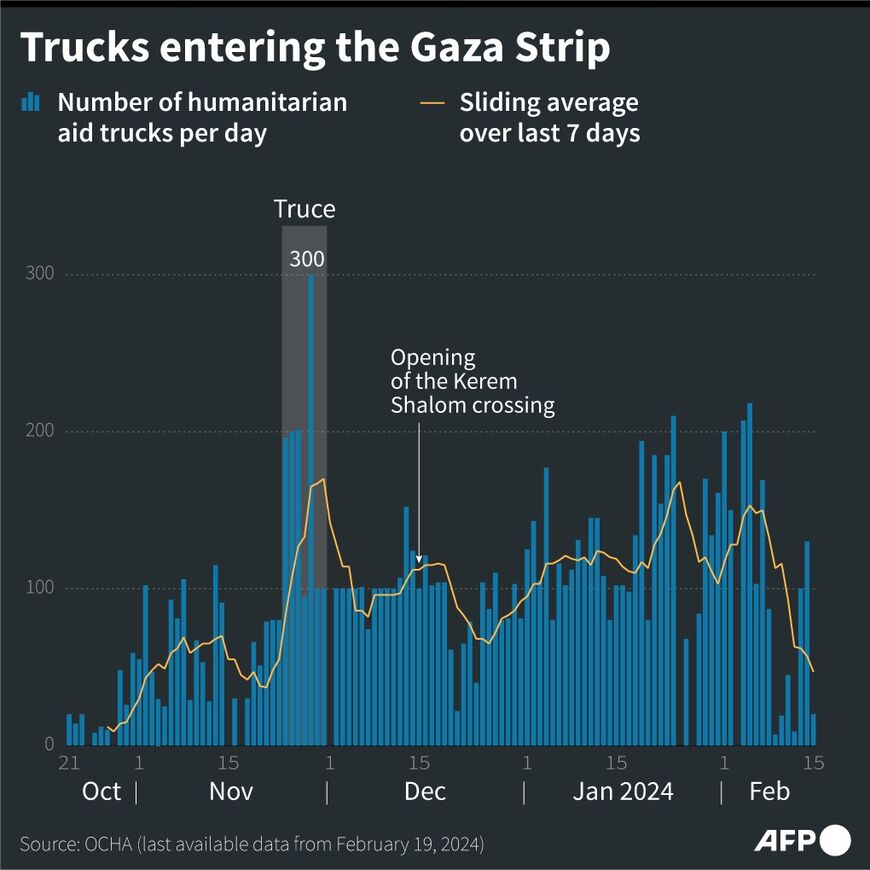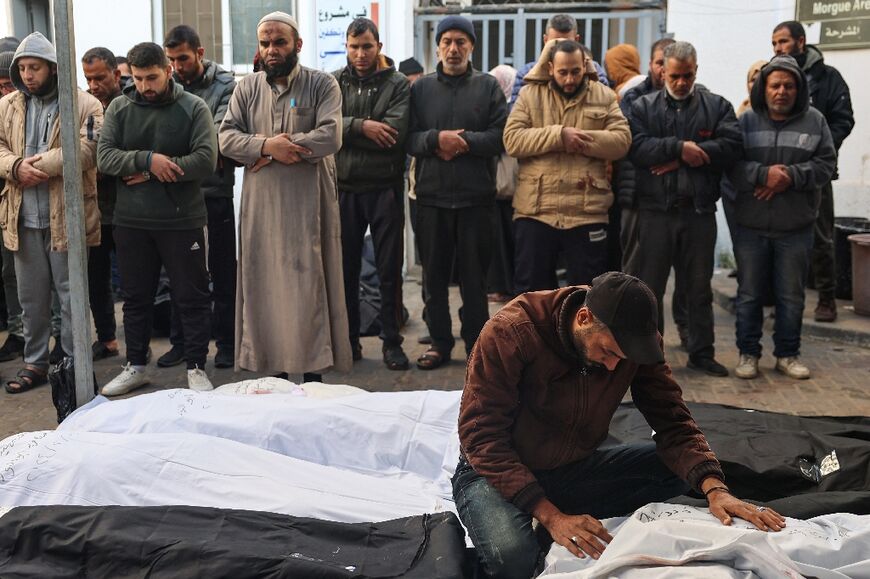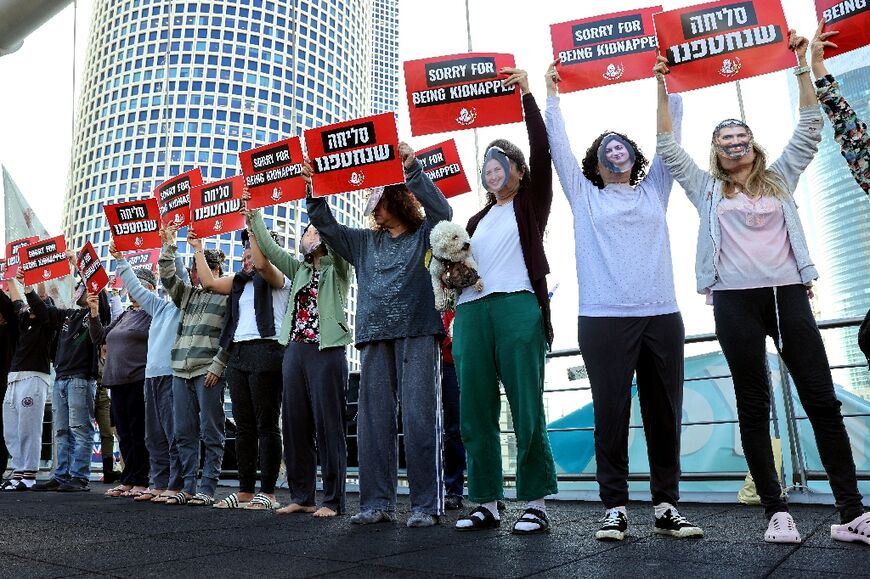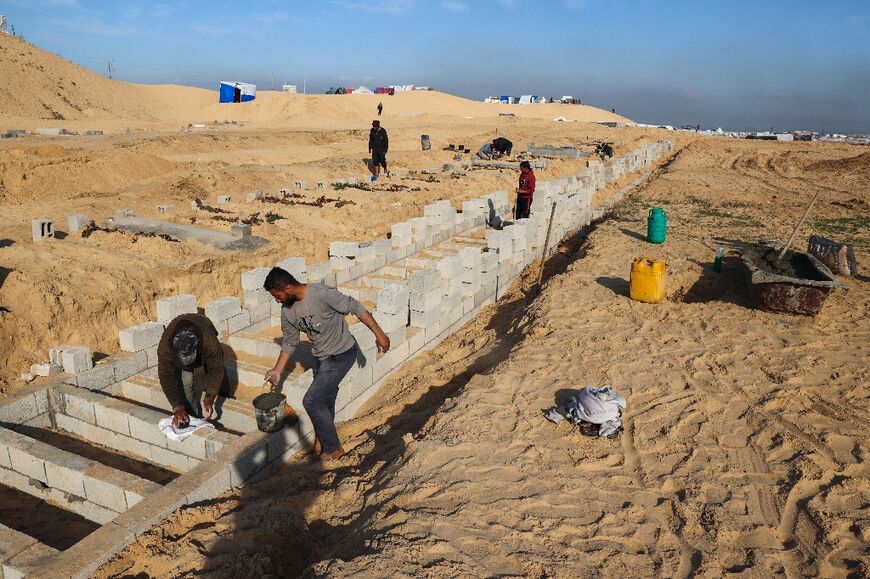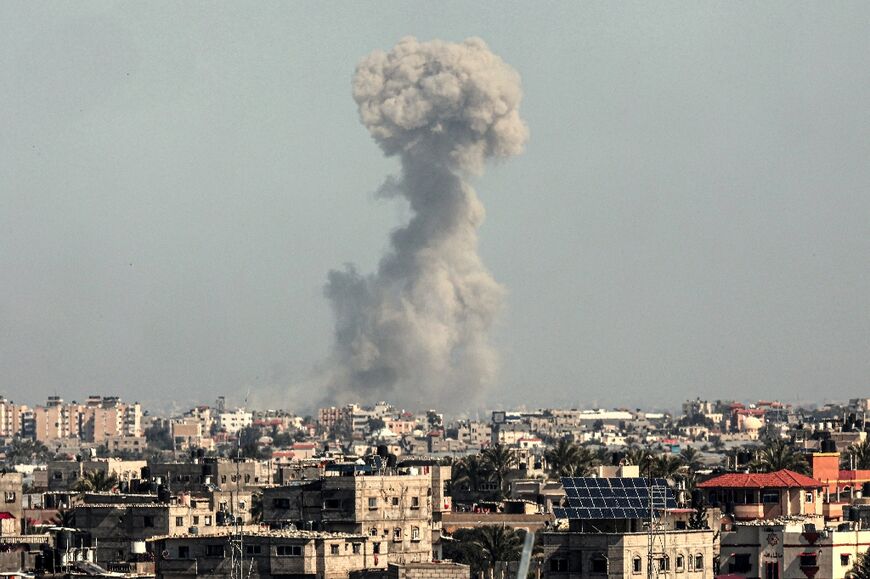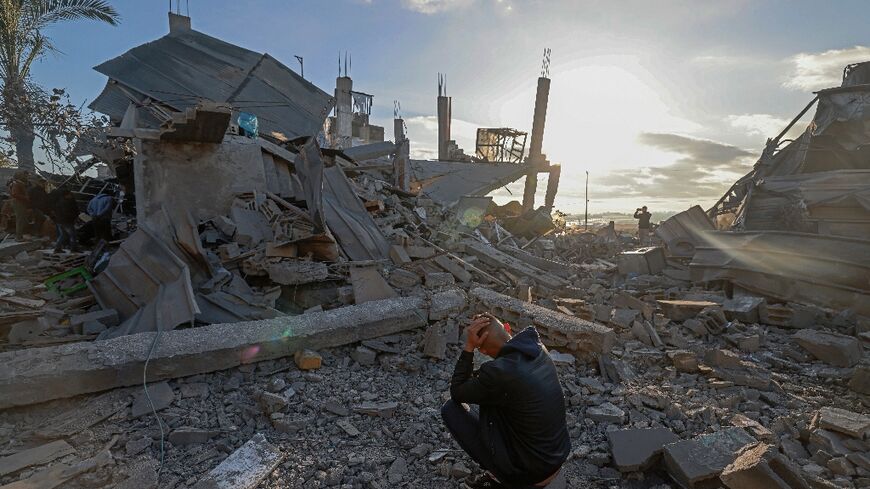Hunger grips war-torn Gaza as truce talks resume in Cairo
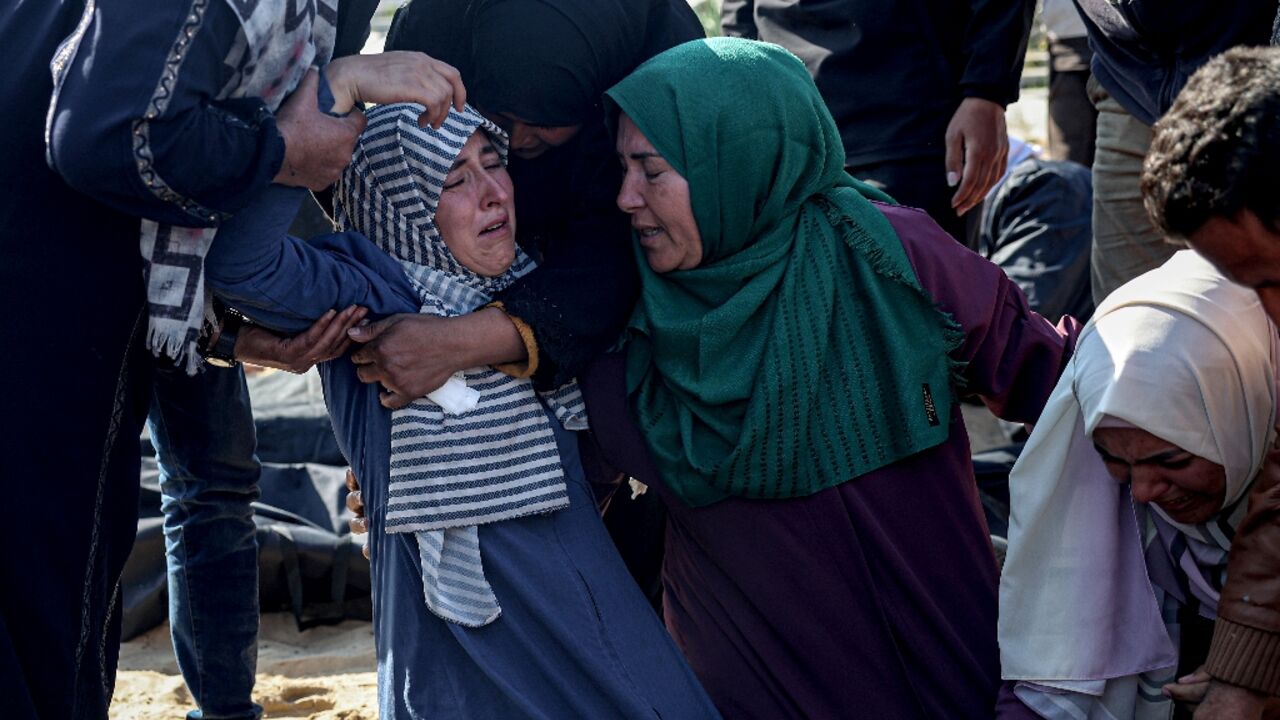
Heavy fighting rocked besieged Gaza on Wednesday as aid agencies warned of looming famine and new talks were held in Cairo towards an Israel-Hamas ceasefire and hostage release deal.
The White House sent Middle East envoy Brett McGurk for renewed talks involving mediators and Hamas, a day after a United Nations Security Council resolution calling for a ceasefire was blocked by the US.
An Israeli minister said the talks had raised the "possibility of progress".
Global concern has spiralled over the high civilian death toll and dire humanitarian crisis in the war sparked by Hamas's unprecedented October 7 attack against Israel.
Combat and chaos again stalled sporadic aid deliveries for desperate civilians in Gaza, where the UN has warned the population of 2.4 million is on the brink of famine.
The UN World Food Programme said it was forced to halt aid deliveries in north Gaza because of "complete chaos and violence" -- a move Hamas called a "death sentence".
More Israeli strikes continued to pound Gaza, with 118 people killed in the previous 24 hours, according to the health ministry in the Hamas-run territory, which put the overall death toll at 29,313.
Abdel Rahman Mohamed Jumaa said he lost his family in strikes on Gaza's far-southern Rafah.
"I found my wife lying in the street," he told AFP. "Then I saw a man carrying a girl and I ran towards him and.... picked her up, realising she was really my daughter."
He was holding a small shrouded corpse in his arms.
- Sexual assaults -
Concern has centred on the packed city of Rafah, where 1.4 million people now live in crowded shelters and makeshift tents, fearing attack by nearby Israeli ground troops.
Palestinians in Rafah were digging more graves in the sand after new strikes Wednesday, with shrouded bodies carried on donkey-led carts.
Spanish Prime Minister Pedro Sanchez became the latest to call for Israel's restraint in Rafah, telling reporters on a trip to Morocco that a ground offensive would be a "catastrophe".
Israeli war cabinet member Benny Gantz said the operation in Rafah would begin "after the evacuation of the population", although Israel has not yet given more details.
Israeli Prime Minister Benjamin Netanyahu has insisted the army will keep fighting until it has destroyed Hamas and freed the remaining 130 hostages, around 30 of whom are believed to be dead.
The war started when Hamas launched its attack on October 7, which resulted in the deaths of about 1,160 people in Israel, mostly civilians, according to an AFP tally of official Israeli figures.
Hamas also took about 250 hostages, many of whom were released during a week-long truce in late November.
A report by an Israeli group that fights sexual violence said the October 7 attack also involved systematic sexual assaults on civilians, based on witness testimonies, public and classified information, and interviews.
Israeli officials have repeatedly alleged the militants committed violent sexual assaults during the attack -- something Hamas has denied -- but it has been difficult to assess the scale given the scarcity of survivor testimonies and lack of forensic evidence.
- 'A death zone' -
Israel has heavily bombed Gaza since the October attack, and launched a ground invasion that has seen troops and tanks push through from the north towards the south.
Vast swathes of the territory have been entirely destroyed with many people struggling to find basic supplies.
One workshop in Rafah said it was producing makeshift diapers by hand with medical cotton, gauze and lab coat fabric -- but warned their capacity is far from enough to meet demand.
"I don't have money to provide food, so how can I provide diapers for her?" said Hanan al-Bahtiti, adding that her baby gets painful skin rashes and "screams in pain".
Doctors Without Borders (MSF) said an Israeli tank fired on a house sheltering MSF employees and their families in the Al-Mawasi area on Gaza's coastline, killing the wife and daughter-in-law of a staff member and injuring six others.
The medical charity condemned the strike in the "strongest possible terms" and said bullets were also fired at the clearly marked MSF building where 64 people were sheltering.
The World Health Organization chief called the situation in Gaza "inhumane", saying the territory had become "a death zone".
Israel's parliament Wednesday overwhelmingly backed a proposal by Netanyahu opposing any "unilateral recognition of a Palestinian state".
The vote came days after the Washington Post reported that the United States and a group of Arab nations were working out a long-term peace plan which included a timeline for the establishment of a Palestinian state.
- 'Possibility of progress' -
McGurk, the White House coordinator for the Middle East and North Africa, was in Egypt as part of efforts to advance a hostage deal, before heading to Israel Thursday.
Hamas said its chief Ismail Haniyeh was already in Cairo for talks.
Israel's Gantz said there were efforts to "promote a new plan for the return of the hostages and we are seeing the first signs that indicate the possibility of progress in this direction."
US State Department spokesman Matthew Miller meanwhile said: "We want to see a hostage agreement that secures a temporary ceasefire where we can get the hostages out and get humanitarian assistance."
Qatar and Egypt have proposed a plan to free hostages in return for a pause in fighting and the release of Palestinian prisoners, but Israel and Hamas have so far failed to agree on a deal.
Washington argued that approving the UN resolution on Tuesday would have imperilled the ongoing efforts to free hostages, after it vetoed an Algeria-drafted resolution demanding an immediate ceasefire and the release of all hostages.
The war has set off clashes elsewhere in the Middle East, drawing in Iran-backed armed groups in Lebanon, Syria, Iraq and Yemen.
Violence has also flared in the occupied West Bank where the Israeli army said its troops killed three Palestinian militants during an overnight raid.
burs-jd/rox/jsa


